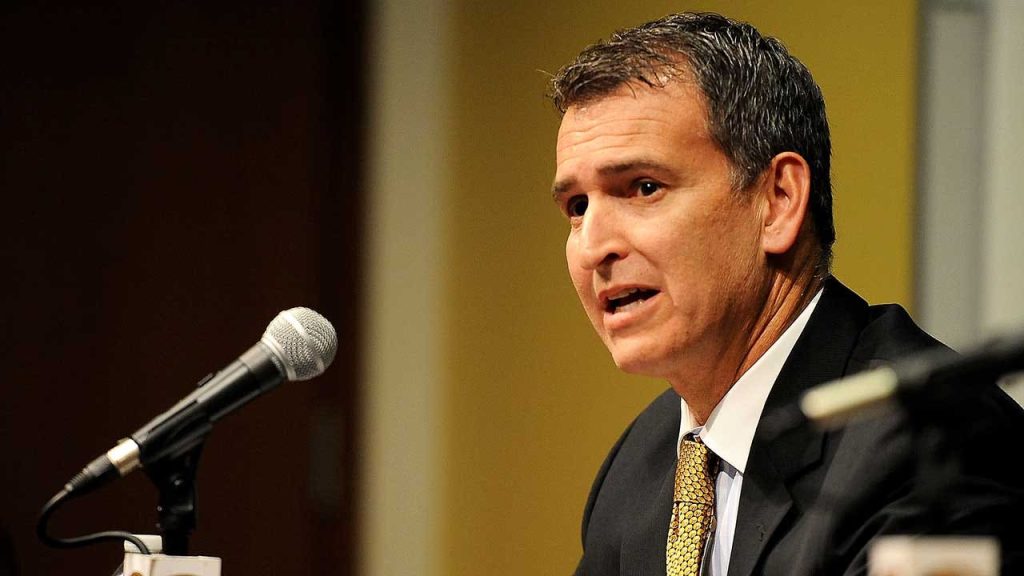When Football Leadership Crosses the Line: Baylor’s Athletic Director Under Scrutiny
A concerning incident involving Baylor University’s Athletic Director Mack Rhoades has recently come to light, revealing troubling interactions with a student-athlete and an assistant coach during a crucial football game. This situation not only raises questions about leadership conduct in collegiate athletics but also highlights the importance of accountability, even for those in positions of authority.
On September 20th, as Baylor prepared to face Arizona State in a Big 12 conference matchup, an alarming series of events unfolded. According to multiple witnesses, Rhoades—who also serves as the College Football Playoff chair—approached tight end Michael Trigg just as the game was beginning. In what can only be described as questionable timing, Rhoades allegedly confronted Trigg about his yellow long-sleeved undershirt (worn to cover a shoulder brace), reportedly using profanity while placing his hands on the player. This interaction occurred at the worst possible moment—right as Trigg was preparing to take the field for the opening offensive series, potentially disrupting the player’s focus at a critical juncture.
The situation reportedly escalated after Baylor’s heartbreaking loss to Arizona State on a last-second field goal. As players were thanking fans and gathering for the school song, witnesses claim that Rhoades physically confronted an assistant coach who was visiting with family members. Multiple sources described Rhoades grabbing the coach’s arm, shoulder, and neck area before verbally accosting him—all in full view of athletic department staff and family members. This public display of aggression prompted sufficient concern that an investigation was launched, with university officials interviewing witnesses and reviewing potential video evidence from cameras around McLane Stadium.
Baylor University has confirmed that an investigation did take place regarding Rhoades’ conduct, and while they haven’t denied any details of the reported incidents, their response suggests they consider the matter resolved. In a statement to OutKick, the university acknowledged: “More than a month ago, Baylor University received reports of an incident involving Vice President and Director of Intercollegiate Athletics Mack Rhoades. These reports were thoroughly reviewed and investigated in accordance with University policies, appropriate actions were taken, and the matter is now closed.” The statement further indicated that Rhoades “expressed regret over his emotions” and recognized his behavior wasn’t reflective of the university’s Christian mission and values.
What makes this situation particularly noteworthy is Rhoades’ prominent position not only at Baylor but within college football’s leadership structure as chair of the College Football Playoff committee. This dual role places him in a position of significant influence over the sport’s most prestigious postseason tournament while raising questions about the standards to which athletic administrators are held. The university’s handling of the situation—acknowledging the incidents occurred while declining to specify what disciplinary actions were taken—leaves ambiguity about whether the response was proportionate to the alleged misconduct.
Despite Baylor’s statement suggesting closure, reports indicate that not all parties consider the matter resolved. The incidents have sparked discussions about power dynamics in collegiate athletics, appropriate boundaries between administrators and athletes/coaches, and the accountability structures within university athletic departments. While Trigg demonstrated remarkable focus by catching two touchdowns for 71 yards despite the pre-game confrontation, the situation raises legitimate concerns about the potential impact such interactions could have on student-athletes’ performance and well-being. As college athletics continues to navigate complex questions about player treatment and administrative oversight, this incident serves as a reminder that leadership positions come with responsibilities that extend beyond winning games and securing championships.


